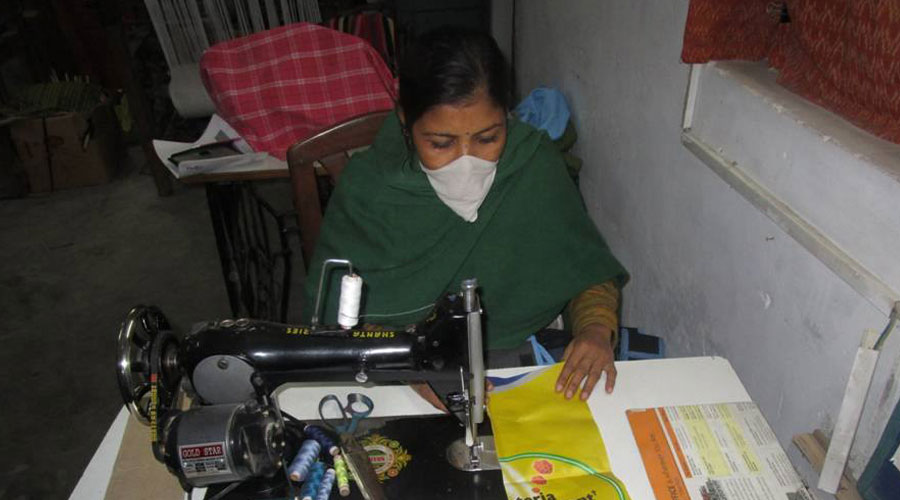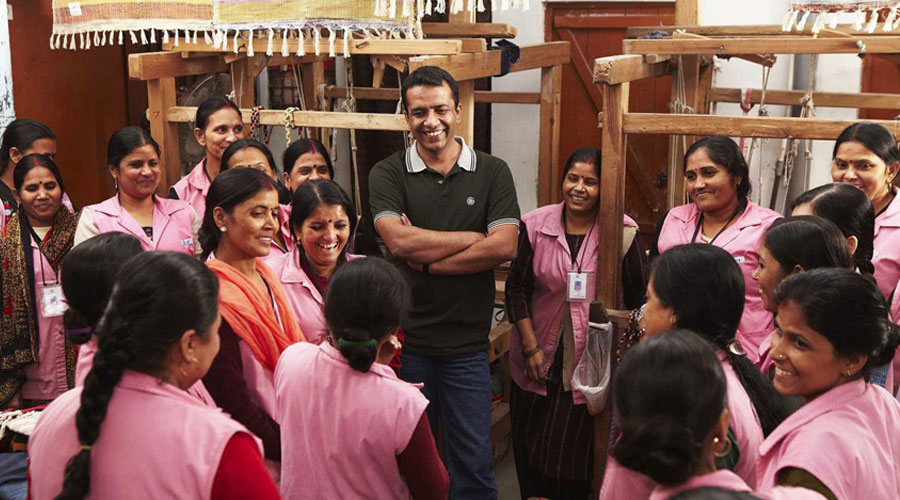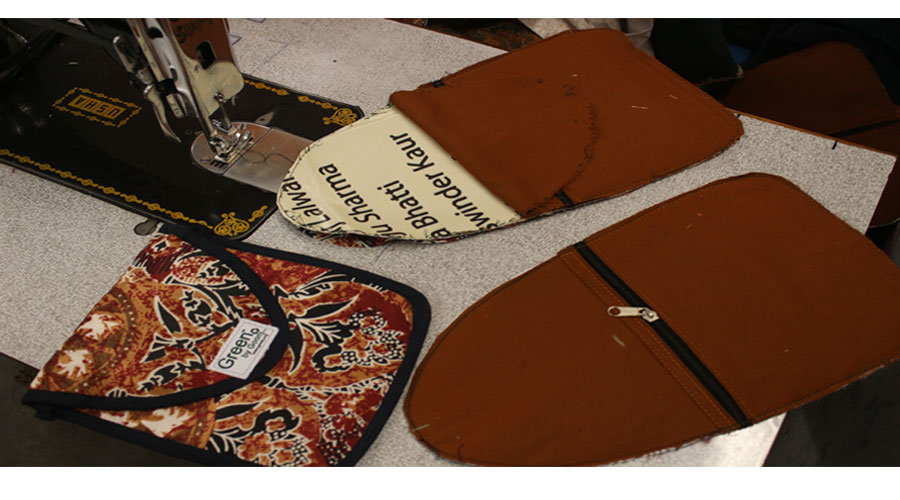Reusing flex for a noble cause: ‘Clothing Man’ shows how
By Bhawana Anand - November 06, 2019
In a conversation with Media4Growth, Anshu Gupta, also called the ‘Clothing Man’ and the Founder- Director of Goonj, a national voluntary organisation, shares how they recycle PVC flex banners and use them to serve the needy.

Well known voluntary organization Goonj follows the principle of a circular economy when it comes to repurposing donated materials for the benefit of the poor. The organization does this by ensuring maximized usage of each material it receives from all over the nation, including from individuals and institutions. Operating in more than 20 states in India, Goonj recycles every piece of donated materials, what they call contributions, towards resources for the daily living of those in rural and natural calamity affected areas. These range from clothes, footwear, utensils, and stationary to sports equipment and used PVC Flex banners. Goonj receives close to 5500 tons of urban discardedmaterials annually, which are recycled and created into useful products and given to rural people as a reward for their initiatives.

Goonj makes various products such as female purses, file folders, handbags, sanitary pads, disposable bags and others,wherein PVC Flex plays a role. “Like in the case of many other discarded materials, we make use of used flex materials in some of our products as part of our philosophy to re-use. In some of the products, flex is used to make them durable and water-proof,” shares Anshu Gupta, Founder- Director of Goonj.

Goonj also uses flex banners in flood affected areas and remote locations. “Since we serve in the remote areas where people live in mud houses, these banners play a major role in covering roofs, floor and are used under mats for longer use,” explains Anshu, also known as the ‘Clothing Man’. Since banners are printed on one side, the printed inks don’t have any adverse impact on the human body.
Currently, Goonj receives a small portion of used flex banners mainly from corporates and printers, which come in indefinite sizes. “There is an adhoc process of collecting flex where a couple of corporates send their printed flex advertisements and we get some left-overs from conferences. However we can absorb at least 100 times more flex than what we are getting currently. We see a huge opportunity in marathons, political campaigns, concerts and large events and we can assure that we can make good use of them as long as they are not completely banned,” sums up Anshu.
In the year 2018-19, Goonj served 4600+ villages where 6200+ rural development activities were conducted with 2,48,000+ family kits, 12,40,000+ my pads and 52000+ school kits distributed.

